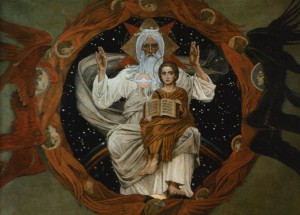An enduring question in the spiritual life is knowing God. In fact, many, many people, even the “professional” Christians struggle with this question and more startling how to answer it that is reasonable, truthful and otherwise satisfying. Who is God to you? How do you know God exists? What is the source of your certainty? Or, alternately, what is your God?
For me, I think we need to attend to the basics and ask how do these basics impact life in a concrete way. For too long Christians have been avoiding answering the question of God’s existence and God’s work in life in a personal way. Recently, I came across the following idea that I find helpful. In Romano Guardini’s The Inner Life of Jesus, we read:
If someone should ask, how do I come to God? What kind of being is God? This would be the answer: God is just as He manifested Himself in Jesus. Whoever looks upon Jesus, whoever takes into account who Jesus is, how He speaks, how He conducts Himself, what His attitudes are – such a one is perceiving God Himself.
And he will get to God by going in Jesus’ company, allowing himself to be instructed by Him, and allowing himself to become centered in that identity with which he makes his approach to Jesus. Then he is indeed on the way, in truth, and he partakes of life.
What do you think? Is Guardini correct that in seeing and knowing Jesus we see and know God?



